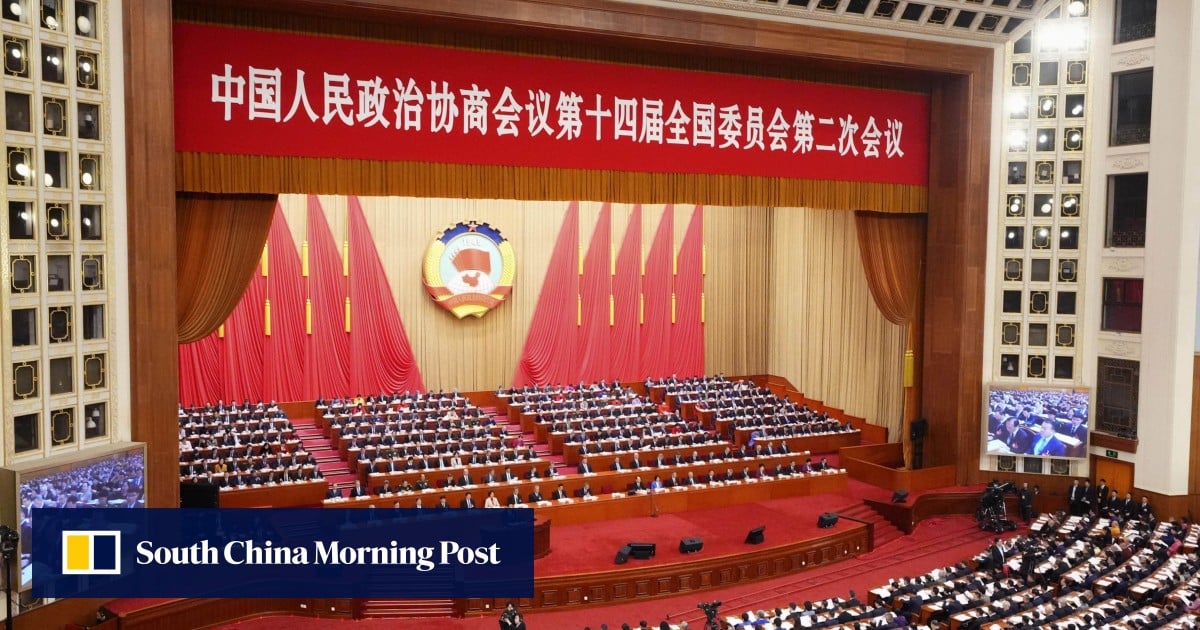Technology executives attending China’s biggest annual political gathering known as the “two sessions” have called for the country to make more home-grown advanced chips and train talent to help with its artificial intelligence (AI) push, according to tabled proposals.
Lei Jun, co-founder and CEO of smartphone giant Xiaomi and a delegate of the National People’s Congress, advocated in one of his four proposals that the country should strengthen AI education to drive the country’s technology and industry upgrades.
Lei said that the teaching of AI literacy should start as early as primary school, and continue throughout compulsory education, covering nine years in total.
“There is a significant lack of top AI talent [in our country] … ,” Lei wrote in his proposal, cautioning that the cultivation of AI talent would be a critical factor to upgrading China’s industries.
Lei also suggested introducing more AI-related subject studies across Chinese universities, stepping up investment in AI education and strengthening collaboration with overseas institutions.
Huawei’s AI chip prowess under scrutiny after Nvidia taps it as likely rival
Huawei’s AI chip prowess under scrutiny after Nvidia taps it as likely rival
Currently nearly 500 Chinese colleges offer bachelor’s degrees in AI, with around 200 institutions applying to set up similar degree studies, representing a relatively small portion of the over 3,000 Chinese colleges.
The proposals were detailed in a post published on Monday to Lei’s official WeChat account.
For every five new jobs in AI in China, there are only two qualified workers in the market, according to a report published late last year by Maimai, a careers-related social network.
Some of China’s top AI talent have chosen to work overseas. At Microsoft-backed OpenAI, the company behind ChatGPT, two of the 13 members on the development team for Sora – OpenAI’s text-to-video model – have been identified as coming from China.
Lei’s other proposals include stepping up the development of a green, low-carbon manufacturing supply chain, enforcing safety regulations on smart driving products, and boosting support for smart manufacturing through the integration of advanced technology.
Apart from talent issues, Cao Peng, chair of the technology committee at Chinese e-commerce giant JD.com and head of its cloud unit, noted that the country needs more home-made advanced chips, needed to train large language models (LLMs), which underpin products like OpenAI’s ChatGPT.
Cao is a delegate to the Chinese People’s Political Consultative Conference, the top advisory body. “Computing power is the foundation for training large [language] models,” Cao noted in his proposals, published on Sunday on JD.com’s official WeChat account.
Sourcing domestic facilities for computing power is a pressing national issue, according to Cao, as this will provide a controllable foundation for local LLMs in the global AI race.
The US has been strengthening its chokehold on China’s access to US technology and financing, from Nvidia’s GPUs to venture capital funding, citing national security concerns.
While accepting it is normal for fierce competition in emerging technology areas, China believes this “should follow the logic of high tech development and market economy rules”, according to Lou Qinjian, a government spokesman speaking at a ‘two sessions’ press conference on Monday.
“Attempts at decoupling, severing supply chains and building a ‘small yard, high fence’ will only impede scientific and technological advances globally, undermine global industrial development and widen the development gap,” he said.
